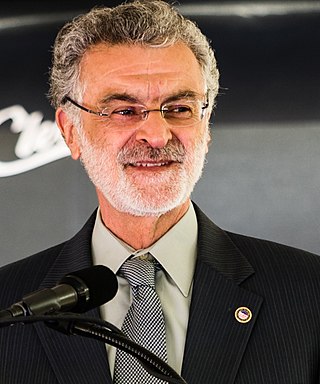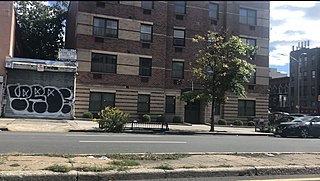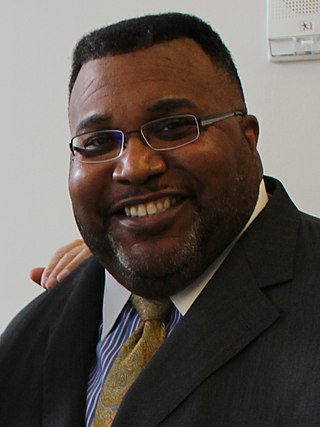Nightlife legislation of the United States is mostly in local jurisdiction of the city or state.
Contents
- New York City, New York
- Boston, Massachusetts
- Shreveport, Louisiana
- Tulsa, Oklahoma
- Richmond, Virginia
- See also
- Notes
Nightlife legislation of the United States is mostly in local jurisdiction of the city or state.
Since 1926, the New York City Cabaret Law has prohibited dancing in all spaces open to the public that sell food and/or drink with the exception of those who obtain a cabaret license.
In 2006, in response to a number of murders which occurred in the New York City area (some involving nightclubs and bouncer), additional legislation was enacted affecting many areas of nightlife.
On March 14, 2007, Boston Mayor Thomas Menino had signed Imette's Law, named after murder victim Imette St. Guillen, which would make it mandatory for nightclub and bar owners to conduct criminal background checks on bouncers and to set up security video cameras outside the establishment. This law was proposed by Boston City Councillor Michael Flaherty and was passed unanimously. [1]
Imette's Law was also enacted in New York State. [2]
The city of Shreveport, Louisiana is also considering a 58-point plan made in New York City. St. Guillen and Jennifer Moore, both killed in the New York City area, were mentioned. [3]
In 2008, Oklahoma City councilman Skip Kelly, seeking to curb club violence, wanted the city of Tulsa to pass an abatement law letting police focus more on nightclubs with various violations. [4] This move was after the shooting of 19-year-old Kascey McClelland at Club Zax. [4] It was reported that police have little clues in the shooting. [4] McClelland died within a week of the six bullet shooting, which occurred in the club's parking lot. [5]
It was also reported that in 2006 that police investigated six shootings, and in 2008 responded to about 700 calls at six of the city's nightclubs. [4] The article stated that "Law enforcement officers blame the violence on youthful immaturity, alcohol, a growing gang problem or on the number of guns on the street." [4]
Kelly indicated that the city's nuisance and abatement ordinance, which was originally designed to control drug use and prostitution will be revised to include violence, loitering and underage drinking. [6] He said:
We are looking at some language that would give full notice to these club owners, and give police and council stronger laws that they can act on; We are looking at something that would withstand any constitutional challenges. [6]
In discussing the violence in these clubs, Kelly said:
We are talking about saving children's lives along with the adults. If the owners say it's a problem in the parking lot we need to hold someone accountable. ... We want accountability for these proprietors. We will withdraw their application or revoke their license. [6]
There was discussion of existing fire codes, overcrowding in the clubs and past murders. [6]
A judge in Richmond, Judge Melvin R. Hughes Jr., refused to halt liquor sales in Cotton Club nightclub, a club that had been allegedly linked to gun shootings and violence. [7] It was indicated by the judge's ruling, however, that the city failed to prove a link to the violence and the business. [7] The police indicated that seven people had either been shot, stabbed or beaten in the vicinity of the club, although no one had been killed. [7] It was reported that part of the Cotton Club would be closed but the restaurant and lounge portion that was downstairs would remain open. [7] Fourth Precinct Commander, John Hall said he was disappointed with the judge's decision and said that the department wanted improvements. [7] Officer schedules would be changed for additional support on weekend nights. [7] It was also reported that neighbors and the Downtown Neighborhood Association were also concerned. [7]
Lesbian, gay, bisexual, transgender, queer, intersex, and asexual (LGBTQIA+) people frequently experience violence directed toward their sexuality, gender identity, or gender expression. This violence may be enacted by the state, as in laws prescribing punishment for homosexual acts, or by individuals. It may be psychological or physical and motivated by biphobia, gayphobia, homophobia, lesbophobia, and transphobia. Influencing factors may be cultural, religious, or political mores and biases.
James E. Davis was an American policeman, corrections officer, and politician. He served on the New York City Council from 2002 to 2003. He was murdered in New York City Hall by a disgruntled aspiring opponent.

A bouncer is a type of security guard, employed at licensed or sanctioned venues such as bars, nightclubs, cabaret clubs, stripclubs, casinos, hotels, billiard halls, restaurants, sporting events, schools, concerts, balls or movie theaters. A bouncer's duties are to provide security, to check legal age and drinking age, to refuse entry for intoxicated persons, and to deal with aggressive, violent or verbal behavior or disobedience with statutory or establishment rules. They are also charged with maintaining order, and ensuring all laws and regulations are being followed by all patrons.

Nightlife is a collective term for entertainment that is available and generally more popular from the late evening into the early hours of the morning. It includes pubs, bars, nightclubs, parties, live music, concerts, cabarets, theatre, cinemas, and shows. These venues often require a cover charge for admission. Nightlife entertainment is often more adult-oriented than daytime entertainment. People who prefer to be active during the night-time are called night owls.

Frank George Jackson is an American lawyer and politician who served as the 57th Mayor of Cleveland, Ohio from 2006 to 2022. He was first elected on November 8, 2005, unseating incumbent Jane Campbell, and re-elected in 2009, 2013, and 2017. Having served four full terms, he is the longest-serving mayor in Cleveland history. On May 6, 2021, he announced he would not seek re-election in 2021.
McKinley Phipps, Jr., better known simply as Mac, is an American rapper from New Orleans' 3rd Ward. He began rapping as a child, releasing his debut album The Lyrical Midget at the age of 13 in 1990, under the stage name Lil Mac. Mac would eventually sign with Master P's No Limit Records and would grow to be one of the most critically acclaimed artists on the label, both as a solo rapper and as a member of the super group 504 Boyz. Mac released 2 solo albums and 1 album as part of the 504 Boyz on No Limit, including 1998's Shell Shocked, which peaked at #11 on the US Billboard 200.

Crime rates in New York City have been recorded since at least the 1800s. They have spiked ever since the post-war period. The highest crime totals were recorded in the late 1980s and early 1990s as the crack epidemic surged, and then declined continuously since the mid-1990s and throughout the 2000s.

Imette Carmella St. Guillen was an American graduate student who was raped and murdered in New York City. She was studying criminal justice at John Jay College of Criminal Justice in New York City. Her murder captured national attention; together with the later murder of Jennifer Moore, it was a catalyst for passage of legislation to require background checks of bouncers in bars and a security plan for nightclubs. Darryl Littlejohn, a bouncer, was convicted of St. Guillen's murder.

Cedric Bradford Glover is a Democratic Party politician who is a member of the Louisiana House of Representatives, representing District 4. He was earlier the two-term mayor of Shreveport, Louisiana, the first African-American to hold that position.
Romona Moore was a 21-year-old Hunter College honors student who disappeared April 24, 2003, in Brooklyn, New York. Two months later, her body was discovered outside an abandoned house which an anonymous caller had directed her mother to. Two male suspects were arrested; they were convicted in 2006 of having kidnapped, raped, tortured, and murdered Moore. The young immigrant from Guyana had been living at home with her parents and relatives before she was kidnapped.
Jennifer Moore was an 18-year-old American student from Harrington Park, New Jersey, who was abducted around July 25, 2006, from Manhattan, New York, and then raped and murdered.

Dino Dibra, also known as The Sunshine Boy, was an Australian suspected murderer and a victim of the Melbourne gangland killings.

A nightclub is a club that is open at night, usually for drinking, dancing and other entertainment. Nightclubs often have a bar and discothèque with a dance floor, laser lighting displays, and a stage for live music or a disc jockey (DJ) who mixes recorded music. Nightclubs tend to be smaller than live music venues like theatres and stadiums, with few or no seats for customers.
A drug lord, drug baron, kingpin, or lord of drugs is a type of crime boss, who is in charge of a drug-trafficking network, organization, or enterprise.

Tup Tup Palace is a nightclub in Newcastle upon Tyne, United Kingdom. It was created in 2007 by entrepreneur James Jukes and club promoters Nigel Holliday and Matthew Smyth at a cost of £2M. The major investors were Nicholas Woodhead and Scottish & Newcastle PLC. The club is located opposite Newcastle Cathedral in the city centre. The venue has a capacity of 600 people and focuses largely on table service. It has become known primarily for its celebrity customers.
The 2006 nightlife legislation in New York City was enacted on August 23, 2006 in response to violent crime involving nightclubs in the New York City area. One of the first measures to come about was a three-point plan proposed by New York City Council Speaker Christine Quinn in her August 8, 2006 memorandum.
Corey Miller, better known by his stage name C-Murder, is an American rapper. He initially gained fame in the mid-1990s as a part of his brother Master P's label No Limit Records, primarily as a member of the label's supergroup, TRU. Miller went on to release several solo albums of his own through the label, including 1998's platinum Life or Death. C-Murder has released nine albums altogether on six different labels, No Limit Records, TRU Records, Koch Records, Asylum Records, RBC Records, and Venti Uno.
Around 2:30 am on July 1, 2017, a shootout occurred at the Power Ultra Lounge nightclub in downtown Little Rock, Arkansas, United States. Twenty-eight people were injured and one hospitalized.
This is a list of protests in Oklahoma related to the murder of George Floyd.

On November 19–20, 2022, an anti-LGBT-motivated mass shooting occurred at Club Q, a gay bar in Colorado Springs, Colorado, United States. Five people were murdered, and 25 others were injured, 19 of them by gunfire. The shooter, 22-year-old Anderson Lee Aldrich, was also injured while being restrained, and was taken to a local hospital. Aldrich was charged and remanded in custody. On June 26, 2023, Aldrich pled guilty in the shooting and was sentenced to five consecutive terms of life in prison without the possibility of parole, plus 2,211 years. On January 16, 2024 Aldrich was additionally charged with 50 federal hate crimes in connection with the shooting.